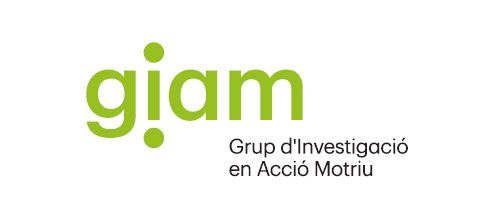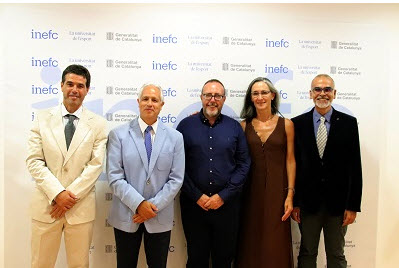El acto de presentación y defensa de la tesis
Resumen
The official guidelines of UNESCO (Kazan Plan, 2017), the United Nations (2030 Cultural Agenda), and the Government of the Canary Islands (Castro, 2021), establish the safeguarding and promotion of traditional games (TSGs) and the accompanying values as priority sustainable development objectives, considering them as intangible cultural heritage. This doctoral thesis consists of two parts: The first part revealed the ethnomotor distinctive features of TSGs (internal logic) and their relationship with the local culture (external logic). For this purpose, an ethnomotor investigation of 513 TSGs was conducted by analyzing the content of 27 written sources published in the Canary Islands since the 1940s. The content analysis was enriched through statistical treatment (descriptive statistical analysis), cross-tabulations, classification trees, and frequency areas. This study identified the educational richness of TSGs in the Canary Islands, characterized by three ethnomotor distinctive features: a wide ludodiversity of sociomotor experiences, the promotion of sustainable learning respecting the material (natural and domestic) and social environment, and the activation of intense ludomotor experiences lived in the present moment (Carpe Diem). In the second part, the effects of an ethnomotor pedagogical intervention (through seven actions conducted inside and outside the school) using TSGs with objects on the development of sustainable, meaningful learning and emotional well-being of primary education students in the Canary Islands were demonstrated. A total of 226 students participated (aged between 11 and 12 years), including 118 girls and 108 boys from seven primary education centres in Telde on the island of Gran Canaria. Various instruments were used to collect information from students (writing a text, GES emotional scale), the teaching staff (semi-structured interviews), and the researcher (field notes, audiovisual recordings). The data analysis followed a mixed-method approach; qualitative data were analyzed through content analysis (deductive and inductive), while quantitative data were analyzed using various statistical strategies (descriptive statistics, multidimensional frequency areas, cross-tabulations -to explore pairwise associations between variables and ethnomotor phases, and decision trees to establish predictive variables for meaningful learning and emotional well-being in each phase-). The findings demonstrated that this experience was innovative, promoting significant transdisciplinary and context-based sustainable development learning within the local culture. The students learned in a secure environment of emotional well-being. It was observed that the family member is a key educational agent in promoting sustainable contextualized ethnomotor conducts, along with the recognition of the crucial involvement of various educational agents. It was also observed that traditional games with objects serve as a talisman in this educational process and contribute to the subjectification of students. Finally, it was observed that confirming the adequacy of the project functions as a thermometer to validate the activation of sustainable, meaningful learning and emotional well-being.
Paraules clau
Praxiologia motriu; Conductes motrius; Etnomotricitat; Praxiología motriz; Conductas motrices; Etnomotricidad; Motor praxiology; Motor conduct; Ethnomotricity

